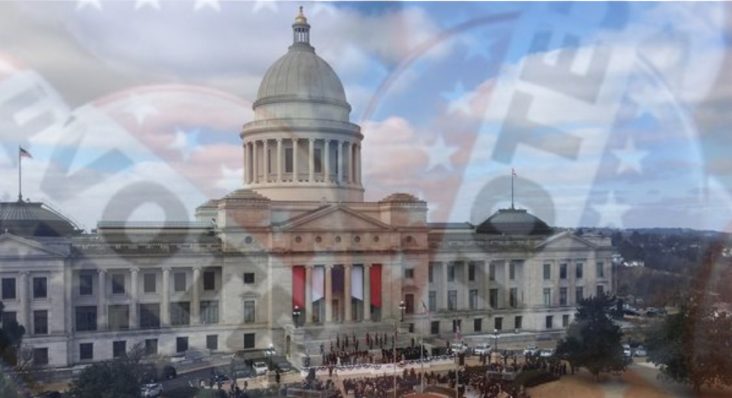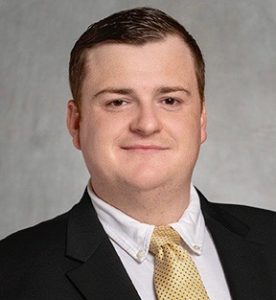House District 50 candidates discuss wages, taxes, job growth policies
by October 25, 2022 6:40 pm 1,185 views

All three candidates for the Arkansas House of Representatives District 50 seat believe the key to success for the state, the region and Fort Smith is the ability to work with other legislators to get things accomplished.
They just didn’t agree on what it would take to get positive things accomplished.
Libertarian candidate Stephen Edwards, Republican Zack Gramlich and Democrat Diane Osbourne faced each other at a town hall debate hosted Tuesday (Oct. 25) by the University of Arkansas at Fort Smith Democracy Project.
“These town halls provide a platform for public officials and political candidates to exchange with the public in general and with our students in particular, on a variety of public affairs issues and on the vision these public figures would like to implement if entrusted with a particular elective office,” Dr. Williams Yamkam, associate professor and director of the UAFS Democracy Project, said of the town hall debates the organization has held throughout the month.
The three candidates participating Tuesday are seeking to fill the seat left open because Rep. Justin Boyd, R-Fort Smith, is running for the District 27 seat in the state Senate. Gramlich, a science teacher at Darby Middle School in Fort Smith, received 71.3% of the votes against opponent Jim Medley in the Republican primary in May. District 50 covers the central and western portions of Fort Smith.

Edwards, a Fort Smith native who served in the U.S. Marine Corps Reserves, said his experience as a “blue-collar grunt” gives him a heart for those who want to find meaningful employment and to fight for occupational licensing reform. Legislative reform of occupational licenses could help economic growth, as could a concerted effort to help technical education and internships, the owner and operator of Across Arkansas Home Inspections said.
Edwards is against any attempt to raise the minimum wage.
“First of all, what is a livable wage? … I’m just not sure where we stand on that. And what happens when we raise the minimum wage? We tend to think everyone working these jobs will have a livable wage. We don’t think about layoffs. We don’t think about people who aren’t getting hired. … I would prefer to think about occupational licensing and how we can remove these barriers so people can enter employment opportunities,” Edwards said.

Gramlich said there does not need to be a rise in minimum wage, a move he says will do more damage than good.
“A change in minimum wage doesn’t seem to be improving people’s lives. If we increase minimum wage too much, businesses will suffer and businesses will have to close. When that happens, people will lose jobs, and they can’t take care of their families,” Gramlich said. “I would say we need to put more money into the pockets of workers by eliminating taxes, such as income tax.”
He said there are other areas to look at as well, like gasoline taxes and fees. Gramlich would also like to see more focus given to areas of workforce development like Fort Smith Public School’s Peak Innovation Center, along with focus given to making sure the intermodal port is built in the area and that universities are supported.
“I see with economic development a number of places through legislation that will ensure that businesses are successful. When businesses are successful, communities can be successful,” Gramlich said.

Osbourne, a former paramedic and cardiovascular nurse, has a different view. She believes the state does need to work toward a higher minimum wage and to do what it can to make housing more affordable.
“$15 an hour is a goal that we can set. It has been shown that that is the minimum that it takes for someone to put food on the table, to pay for their housing, to pay for their healthcare. Right now we are in the middle of a situation where prices are going up, things are becoming less affordable, and inflation exists. Things have never cost what they cost now, and our wages have to keep up with that,” Osborne said.
Osbourne said the area is going to see growth in the next 10 to 20 years because of the continuing work on Interstate 49, the possible intermodal port and the potential new mission for the 188th Fighter Wing. The state legislature needs to do its part to make good legislation that will accommodate that growth, she said.
Along with making legislation that is accommodating to larger corporations coming to the area, there needs to be legislation in favor of small businesses being able to get on their feet and supported through a number of programs, she said.
The election is Nov. 8. Early voting began Oct. 24 and will continue through Nov. 7. Link here for more election info.
